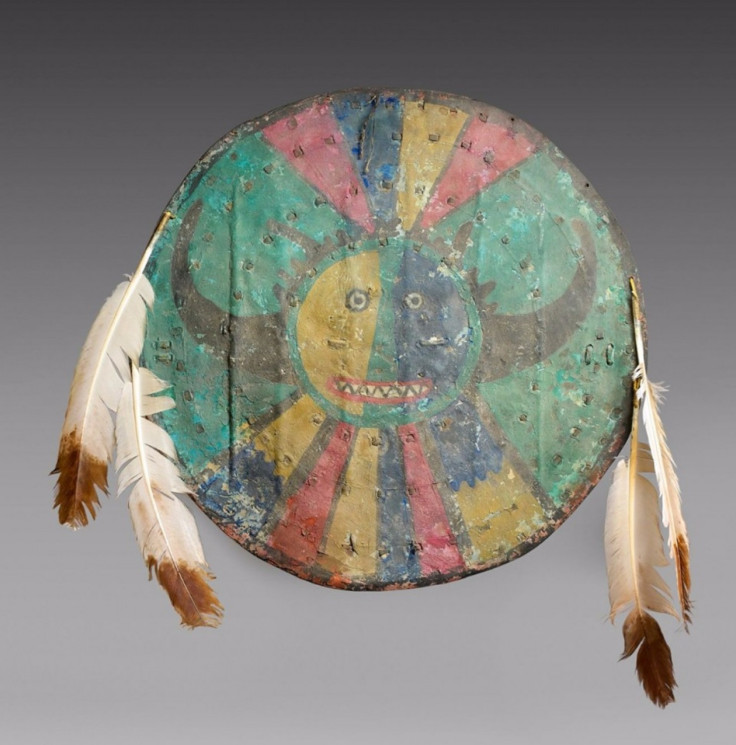Native Americans protest about sacred objects auction in France

A group of Native Americans and a US State Department official are appealing to a French auction house to cancel the sale of sacred Indian artifacts.
The planned sale of hundreds of items at the Eve auction house in Paris includes ceremonial objects with religious significance to the Hopi tribe, including representations of religious characters known as "Katsina friends". Sale of the objects is considered an act of extreme sacrilege by the Hopi.
Other items include a war shirt from a Plains Indian tribe, featuring hair from human scalps, and a ceremonial Acoma Pueblo war shield.
It is illegal in the US to sell any Native American ceremonial objects, but it is not in France. An Eve spokesman said the tribes can buy back their history if they choose to do so.
Eve director Alain Leroy told the Associated Press that "all the items proposed are of legal trade" and that "the public auction process allows the different tribes to acquire their past, and that is exactly what some tribes prefer to do, seeking efficiency and discretion".
The governor of Acoma Pueblo, Kurt Riley, has asked Secretary of State John Kerry to intervene with French authorities.
Riley said at an emergency meeting in Washington DC with other tribal leaders and US officials to discuss what action to take that his tribe's war shield was seized illegally, and its loss has caused the Pueblo emotional harm.
"How it left the pueblo, we don't know," he said. "Its mere existence outside the pueblo tells us an event occurred in violation of Acoma law. A black market for these cultural items has emerged in the United States."
Other leaders at the meeting decried the "wagonloads" of sacred objects stolen from Native Americans. A member of the council of the Hoopa Valley Tribe, which also has items up for sale across the ocean, talked of sacred objects as being "alive".
"These objects are not just a mere object in some fancy collection, these objects are living beings to us," said Bradley Marshall. "These objects are a part of our family."
"This type of commercialization of Native American cultural property is fundamentally wrong," said Mark Taplin of the State Department.
© Copyright IBTimes 2024. All rights reserved.







